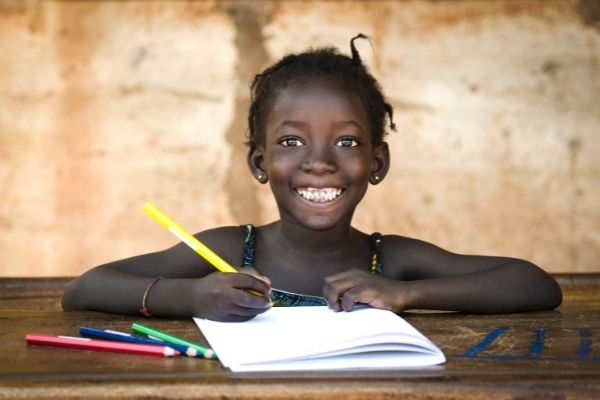Deadline: 1 August 2022
CODE, in partnership with the International Literacy Association (ILA) is pleased to announce the fifth Call for Research Proposals for Context Matters Research Grants 2022 Program to support research which is clearly situated in local contexts and recognizes the multifaceted and complex relationships between the local and global in education.
CODE, through its Context Matters program, funds research initiated, designed, and undertaken by African researchers. Key aspects of the program are building research capacity of African scholars, promoting knowledge sharing, and informing praxis and policy
Areas of Inquiry
Proposals should address at least one of these three areas of inquiry:
- Teacher Education
- Literacy Practices
- Digital Literacies
Themes
In 2022, Context Matters is primarily interested in research projects that relate to one or more of the following general themes:
- advancing local literacy practices;
- advancing context specific ways of knowing;
- the intersection between literacy, education, and girls’ empowerment;
- the factors and/or interventions that contribute to reducing barriers to quality education for women and girls: with disabilities; in fragile, conflict, refugee and crisis situations; and/or in relation to the impact of the COVID pandemic.
- the role that pre-service teacher education and in-service professional development plays in strengthening the educational opportunities for girls and vulnerable populations;
- the relationship between the school, the home, and the community and the role this plays in strengthening culturally relevant literacies;
- the impact of digital literacies as well as the use of technology in teacher education and classroom learning;
- aim to contribute to sustainable change.
Context Matters is designed to:
- Support work by African scholars and researchers addressing issues identified in collaboration with the African literacy and teacher education communities.
- Advance research in Africa by Africans in ways that are responsive and respectful of participants and their communities.
- Strengthen the research capacity, knowledge, and recommendations of those working in the African context.
- Fund research initiated, designed, and undertaken by local teams.
- Foster international partnerships and alliances that bolster Africa’s ability to meet the UN Sustainable Development Goals in the areas of education and gender equality.
- Build a body of evidence that can be used to support education policy recommendations at local, regional, or national levels.
Research Projects
In 2022, CODE and ILA are primarily interested in research projects that relate to one or more of the following:
- Explore the intersection between literacy, education, and girls’ empowerment.
- Investigate the impact of digital literacies as well as the use of technology in teacher education and classroom learning.
- Investigate the role that pre-service teacher education and in-service professional development plays in strengthening the educational opportunities for girls and vulnerable populations.
- Advance local literacy practices.
- Advance context specific ways of knowing.
- Explore the relationship between the school, the home, and the community and the role this relationship can play in strengthening culturally relevant literacies.
- Explore the factors and/or interventions that contribute to reducing barriers to quality education for women and girls: with disabilities; in fragile, conflict, refugee and crisis situations; and/or in relation to the impact of the COVID pandemic.
Funding Information
- The grant is issued in Canadian dollars up to $10,000.00.
- The studies can be of any duration but are envisioned to cover a two-year period.
Eligible Countries
Angola, Benin, Botswana, Burkina Faso, Burundi, Cameroon, Cape Verde, Central African Republic, Chad, Comoros, Congo, Cote D’Ivoire, Democratic Republic of the Congo, Djibouti, Equatorial Guinea, Eritrea: Eswatini, Ethiopia, Gabon, Gambia, Ghana, Guinea, Guinea-Bissau, Kenya, Lesotho, Liberia, Madagascar, Malawi, Mali, Mauritania, Mauritius, Mozambique, Namibia, Niger, Nigeria, Reunion, Rwanda, Rwanda, Saint Helena, Sao Tome and Principe, Senegal, Seychelles, Sierra Leone, Somalia, South Africa, South Sudan, Sudan, Swaziland Tanzania, Togo, Uganda, Zambia, and Zimbabwe.
Eligibility Criteria
- Context Matters welcomes proposals from researchers, academics, and educators who are residents of and work in the education sector in eligible countries.
- Funded researchers must be affiliated with and/or collaborate with an academic institution. All proposals should reflect current professional research standards and must articulate how they will adhere to ethical standards and procedures for research involving human participants.
- Research proposals must clearly address how the results will contribute to or fill a gap in existing knowledge and understanding. Context Matters does not fund “monitoring and evaluation (M&E)” components of existing programs.
For more information, visit https://code.ngo/2022/02/10/context-matters-research-grants-2022/
